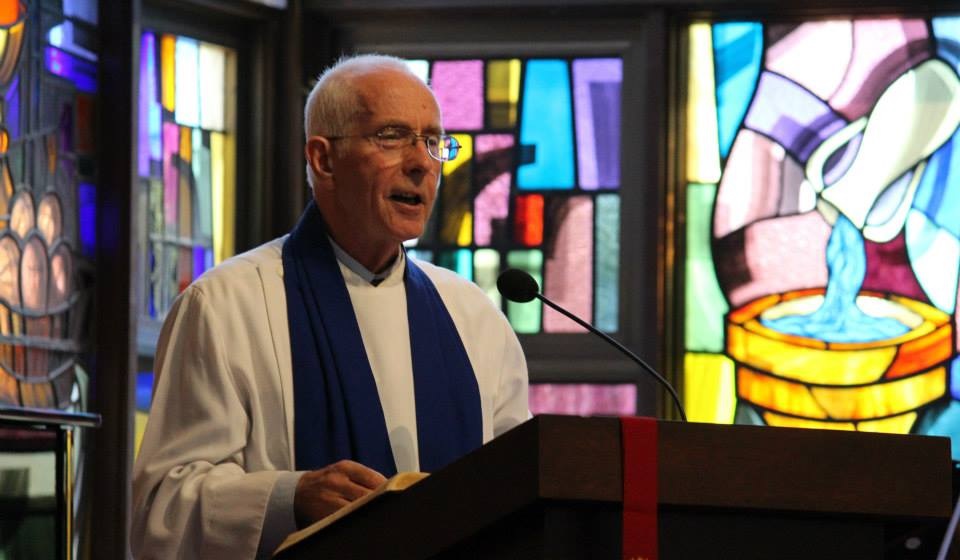With Rev. Prof. Dean Drayton

What is the divine secret to life?
If I could show you in the Bible the divine secret written in seven different books, the highway to life itself, would you be interested?
It is spelled out once in the book of Leviticus in the Old Testament. In the New Testament it is there in three places in Matthew, one of which is repeated in Mark and Luke, and then quoted in two of Paul’s letters and once in James’ letter. Each of these seven witnesses derive this secret from Jesus himself.
Paul declares it summarises all the writings of the Scripture (Gal 5:14), and fulfills the law (Rom13:9). James too affirms it fulfills the royal law of scripture.
In the Beatitudes Jesus contrasts this truth with the common misunderstanding that hides it (Matt 5:43), and then when a rich young ruler asks for the secret of eternal life Jesus shows him what is involved (Matt 19:19).
By now you will have some inkling of what I am pointing to. The divine secret is “Love your neighbor as yourself”.
It is Jesus who quotes this passage from Leviticus as the second of two commandments when asked for the first commandment of all.
The first is ‘Hear, O Israel; the Lord our God, the Lord is one;
You shall love the Lord your God with all your heart, and with all your soul, and with all your mind, and with all your strength.’ The second is this, ‘You shall love your neighbor as your self.(Mk 12:29-31)
Most of us know these words. We can say them and want to do them. In Luke’s account Jesus reframes these two commandments into one way of acting (Lk 10: 26-27). When a lawyer asks what must be done to inherit eternal life, Jesus asks him what is written in the law and the lawyer gives these two commandments. When Jesus commends his answer the lawyer asks “And who is my neighbor?” At this point Jesus tells the story of the Good Samaritan. In so doing he takes the focus away from the commandments and puts it on what it means to be a neighbor.
A Samaritan stops to rescue a near dead Israelite left on the side of the road from Jerusalem to Jericho after two countrymen had passed him by. Jesus asks the question of the lawyer. ‘Which of these three, do you think, was a neighbor to the man who fell into the hands of the robbers?’ The Lawyer answered, ‘The one who showed him mercy’, to hear Jesus’ reply, ‘Go and do likewise.’
This story resonates deeply in so many ways. The act of mercy crosses racial and ethnic borders that separate us from each other. A merciful neighbor would act for those whose islands are being flooded as the globe warms. A merciful neighbor would hear the cry of a violated earth and show mercy to our planet.
In Jesus’ ministry the kingdom of God brings mercy to those who have been robbed of life in all its fullness and abundance. He joins with us and suffers with us as we lie wounded in all our ways. In this kingdom we discover God is our neighbor who shows mercy upon him in his death and through him to all of us.
Jesus ties the two commandments together in mercy. We are called to be merciful to others as their neighbor. We find the God we are called to love is the merciful one who is a neighbor to us, who with mercy tends and restore us to life. The Lord God is the Good Samaritan! God calls us to be merciful because God is merciful. What a marvellous reframing of commandments into the reality of mercy. Love your neighbor as yourself. Be merciful as a neighbor to all in need.
Recently a Bishop preached to the powerful in Washington. Be merciful she said. Did they hear an invitation to stand in the presence of God, the One who is merciful? Mercy is the divine secret written into the scriptures. The invitation is given to each of us to be a neighbor who has found and stands in the everlasting river of mercy.

Rev. Prof. Dean Drayton
(호주 연합교단 증경 전국총회장, 이이오나 트리니티 대학 이사장)
생명의 신비란 무엇인가?
성경의 일곱 권에 걸쳐 반복적으로 나타나는 이 신적 계시는, 인간 존재의 본질과 삶의 궁극적 방향을 결정짓는 본질적 통찰을 제시한다. 이 신비는 구약의 레위기에서 최초로 등장하며, 신약의 마태복음에서 세 차례, 마가복음과 누가복음에서 각각 한 차례, 또한 바울의 두 서신과 야고보서에까지 반복적으로 인용된다. 공통적으로 이 모든 본문은 예수의 직접적인 인용과 실천을 통해 권위를 획득한다.
바울은 이 계명이 율법 전체를 요약하는 핵심이라고 강조하며(갈 5:14), 로마서에서는 율법의 완성으로 규정한다(롬 13:9). 야고보는 이를 성경의 ‘왕의 법’이라 명명함으로써 그 신학적 위상을 부각시킨다. 예수는 산상수훈에서 일반적인 율법 이해와 이를 대조함으로써, 이 사랑 계명이 단순한 윤리적 명령을 넘어선 정체성의 전환임을 시사한다(마 5:43). 특히 마태복음 19장에서 부자 청년과의 대화를 통해, 그는 영생의 조건으로 이웃 사랑의 구체적 실천을 제시한다.
이렇게 반복적으로 나타나는 성경적 증언의 핵심은 분명하다. 그것은 바로 “네 이웃을 네 자신과 같이 사랑하라”는 것이다.
예수께서는 가장 큰 계명에 대한 질문을 받았을 때, 신명기의 쉐마(신 6:4–5)를 인용하여 하나님 사랑을 제시하고, 곧이어 레위기 19:18의 이웃 사랑 계명을 병렬적으로 제시함으로써 두 계명을 실질적으로 하나의 윤리로 통합한다(막 12:29–31).
누가복음은 이 계명의 윤리적 요청을 더욱 실천적으로 풀어낸다(눅 10:26–27). 영생에 관한 율법사의 질문에 예수는 율법의 요약으로 하나님 사랑과 이웃 사랑을 도출하게 한 후, 이 사랑의 개념을 확장하기 위해 ‘선한 사마리아인’의 비유를 들려준다.
강도 만난 자를 제사장과 레위인은 외면하지만, 사마리아인은 능동적으로 개입하고 회복의 주체가 된다. 이 이야기는 자비가 민족적, 종교적 경계를 초월하여 타자에게 다가가는 적극적 윤리임을 보여준다. 예수의 마지막 명령, “가서 너도 이와 같이 하라”는 청중을 이 사랑의 수행자로 호명한다.
이 자비는 오늘날에도 기후 변화로 삶의 터전을 잃어가는 이웃들, 파괴된 생태계의 신음에 응답하는 행동으로 확장된다. 예수의 공생애는 생명을 빼앗긴 자들에게 자비로 다가가는 하나님 나라의 구현이다. 고통받는 자의 곁에 머무르며 함께 아파하는 이 사역 안에서, 우리는 하나님을 ‘자비로운 이웃’으로 경험하게 된다.
결국 예수는 하나님 사랑과 이웃 사랑을 ‘자비’라는 하나의 행위 안에서 통합한다. 우리가 사랑할 하나님은 우리를 자비로 돌보시는 이웃이신 하나님이며, 우리가 부름받은 존재란 자비를 실천하는 이웃이다.
하나님은 선한 사마리아인이시다. 하나님의 자비는 율법의 재구성을 요청하고, 이웃 사랑은 단순한 도덕적 명령이 아니라 존재론적 응답의 방식이 된다. “네 이웃을 네 자신과 같이 사랑하라”는 말씀은 곧 모든 타자에게 자비를 베푸는 삶의 방식을 요구하는 선언이다.
최근 워싱턴에서 한 주교가 권력자들에게 선포했다. “자비를 베푸십시오.” 그들은 이 외침 속에서 자비의 하나님, 그 임재 앞에 선 초대의 울림을 들었을까? 자비는 성경 전체에 흐르는 신적 내러티브의 핵심 주제다. 오늘날 이 비밀은 여전히 유효한 초청으로 다가온다. 자비의 강가에 서서 이웃이 되어라. 그리고 너도 가서 이와 같이 하라.
번역 = 김환기 사관
크리스천라이프 편집부

